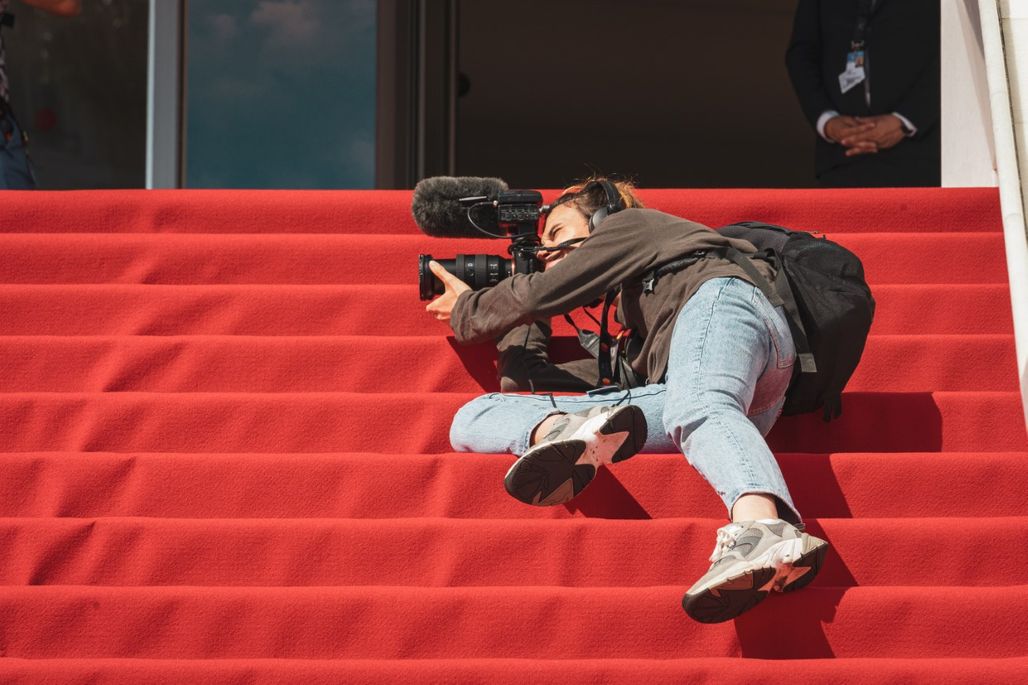
Writing the Cinéma de Demain at Cannes

Revealing talents and watching them evolve. Film after film, filmmakers lay down the milestones of their careers. This year’s Competition features four directors whose debut films were screened at the Festival, well before they had become masters of their craft. Role models for the next generation at Cannes, that of the Cinéma de Demain.
Award Ceremony, 1984. The actor François Périer calls to the stage the winner of the best debut film. “The Caméra d’or is awarded to… Stranger Than Paradise.” Timid applause. A 30-year-old filmmaker with a full head of grey hair took the stage. He didn’t say a word. The Festival de Cannes just witnessed the birth of a great director, Jim Jarmusch. End of shot.
This film, for its part, was acclaimed by the world of cinema. At the forefront, Wim Wenders, having just won the Palme d’or for Paris, Texas. To the journalist who asked the German filmmaker about the white badge placed on his jacket, he responded: “I’m trying to do some advertising for my favourite film. Have you seen Stranger Than Paradise? It’s an American film, the kind they haven’t made for a long time.” Jarmusch would then go on to win a Short Film Palme d’or for Coffee and Cigarettes in 1993, be present eight times In Competition and win a Grand Prix for Broken Flowers in 2005, in an almost 40-year career. Enough to make a young filmmaker dream.
GOLDEN BEGINNINGS
Since 1978, the Caméra d’or has been awarded to the best first film screened in the Cannes sections. In such a way has a great diversity of film cultures been put under the spotlight, going from Ildikó Enyedi in 1989, the current president of the La Cinef and Short Film Jury, to Lukas Dhont in 2018, a Grand Prix winner for Close barely four years later.
Today, one of the former winners of this prize is In Competition. It is Tran Anh Hung with La Passion de Dodin Bouffant (The Pot-Au-Feu), thirty years after The Scent of Green Papaya. Like the Franco-Vietnamese director, Jessica Hausner, was also a revelation at Cannes well before Club Zero (2023). Twenty-five years ago, she received a Special Mention from the la Cinef Jury for Inter-View, a short film made during her studies.
THE SCHOOL OF CANNES
For twenty-six years, La Cinef has screened a selection of short and mid-length film school films. Among the laureats: Emmanuelle Bercot (1999), Kornel Mundruczó (2004), Juho Kuosmanen (2008) and Kamal Lazraq (2011), all well known today, and all of whom have returned to the Festival with their feature films. Similar destinies could well await the winning filmmakers this year. The la Cinef Jury presided over by Ildikó Enyedi announced its all-women award winners on Thursday 25 May: Third Prize went to the Moroccan Zineb Wakrim for Ayyur (Moon) and Second Prize went to the South Korean Hwang Hyein for Hole. As far as the First Prize, the Jury stressed the audacious and innovative work, and the beauty of the writing, of the Danish director Marlene Emilie Lyngstad, who made Norwegian Offspring. Although it is an art in and of itself, short films are considered by many filmmakers as a step towards feature films, a useful way of convincing producers.
SUPPORTING WRITING
When the projectors at Cannes go dark, the Festival does not stop supporting le Cinéma de Demain with The Residence. Each year, it hosts a dozen young directors in Paris and supports them in the writing of their first or second feature film. That’s how Wang Bing developed Tie Xi Qu: West of the Tracks. While the film was shown to a very limited audience in China, the Residence made it possible to accompany the documentary throughout the world. The Chinese director has gone on to become a master of observation, invited to Cannes on four occasions, including twice this year, for Youth (Spring) in Competition and Man in Black as a Special Screening.
Given the latest session of the Residence, there’s a lot to be confident about when it comes to the future of cinema. Nadav Lapid has praised the work that he discovered as a jury member during the pitch session organized by the CNC. The Israeli director, himself having gone through the Residence and the la Cinef Competition, was enthusiastic: “I feel that there could well be a lot of gems in this Residence.” No doubt the future of these filmmakers will be closely examined and, for all we know, will write the future of the Festival de Cannes.


